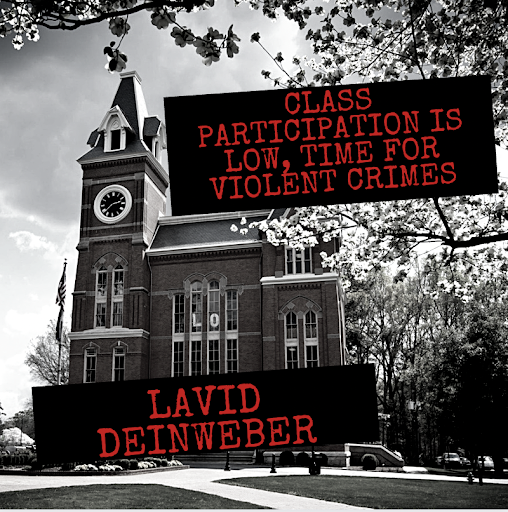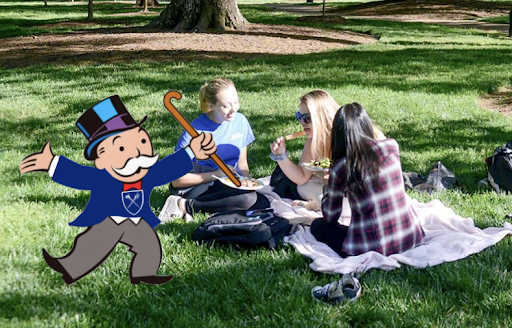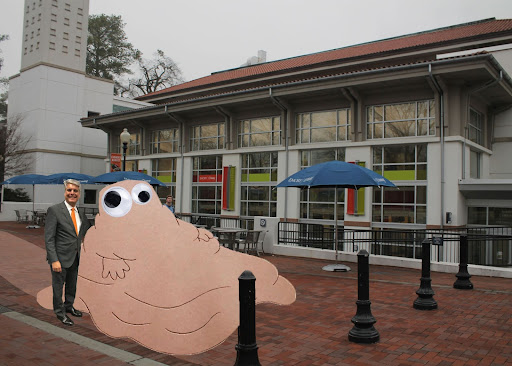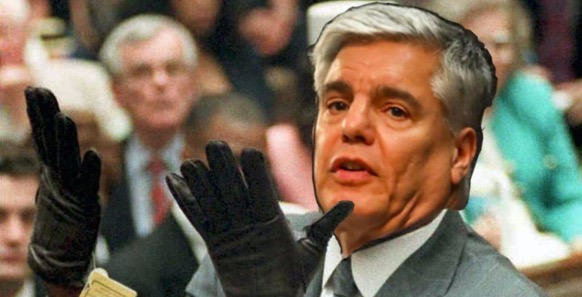The Emory Wheel has long charmed us with their opinion section pieces, arts and entertainment reviews, and campus event coverage. Who can forget the season 1 finale that featured the Wheel’s iconic article “Sorority Recruitment Disempowers Women,” whose short-lived spin-off response pieces continued for months? Who among us wasn’t delighted when season 2 opened with the instant classic “Sexual Assault: Can It Be Stopped?” Never one to rest on their laurels, the Emory Wheel brought us a thriller, which received their highest ratings yet, by fanning the flames of a national chalk-centered controversy. With the hype for Season 3 at an all-time high, the Emory Wheel needed a fresh twist on the rage-induced share model of previous seasons. Unfortunately, they did not deliver.
Season 3 started confidently with “The Fascist Expansion of Kaldi’s.” In it, we see the Wheel go beyond its usual pretentious self-serious style, instead delivering a quirky and quasi-comedic narrative about a man who loves Emory Radio and Zaya’s waffles. The protagonist finds himself at odds with the looming threat of Kaldi’s expansion, which the narrator even goes as far as to say is “fascist.” It’s a bold if expected move for a newspaper always looking to push people’s buttons to stay relevant.
Unfortunately, later installments see the Wheel floundering for identity. “University Begins Work on DUC’ling” bores readers with the straightforward minutiae of ever-present construction, while “SGA Roundtable Addresses Lack of Graduate Student Voice” suffered from poorly developed characters and such a single-minded focus on campus bureaucracy that the Senate trade route deliberations of the Star Wars prequels seem thrilling by comparison.
Sadly, it is the arts and entertainment section that disappoints most this season. Eager to maintain the appearance of objectivity, the Emory Wheel finds it necessary to relentlessly criticize student productions. This is seen in review episodes such as [title of show] and The Boys from Syracuse, the former featuring a petty reviewer who critiques the set’s poster choice, the latter a guest appearance by an author who spends ¾ of his review critiquing the music and script of a 78 year old play and begins with the author’s prophetic question asking “Am I intellectually deficient?” as the answer becomes painfully clear. This attitude of condescension to fellow students is best exemplified by the Wheel’s review of the homecoming concert, which features a scathing critique of a student DJ’s set as having an “awkward high school dance vibe.” What makes this statement particularly unfounded is that most Wheel writers spent their entire homecoming nights being given swirlies in the girl’s restroom, not awkwardly grinding on the dance floor. While the episode “Mac Miller’s ‘Divine Feminine’ is His Best Work to Date” does a great job at keeping audiences’ attention with its full sentence long title and assertion that Mac Miller now “focuses on far more serious topics than the delights of Kool-Aid and frozen pizza,” audiences are still left scratching their heads at the ultimately pointless exercise of writing a review for a newspaper whose continued existence acts as reassurance that disbanding the journalism department was the right decision.
Rumor has it that the Wheel also covers sports, but unfortunately I was unable to finish a single article without falling immediately lapsing into a boredom-induced coma. The combined weight of the terrible article titles (“Emory Swimming Dives into Season” comes to mind) and the Emory student body’s apathy toward our Division Three sports rendered the entire exercise as embarrassing as wearing an “Emory Football is Undefeated” shirt. As usual, Season 3 rightly leaves sports a side-plot that may soon be abandoned.
Overall, the Emory Wheel suffers from the flaws that plagued previous seasons: pretentious writing, emphasis on attention-grabbing titles over substance, and the mistaken belief anyone reads their publication.
Rating: 5/5 (because the Spoke supports student endeavors, unlike The Wheel)










Be First to Comment